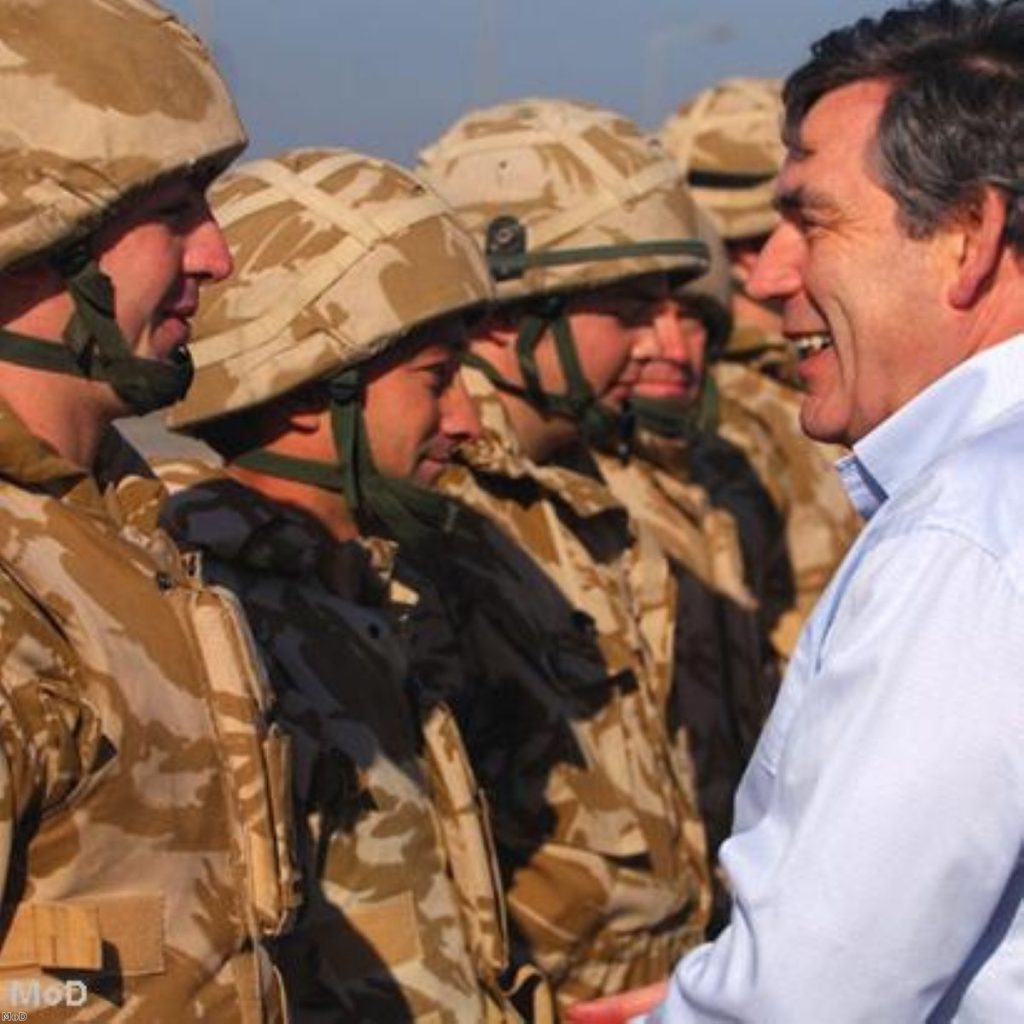Analysis: Brown’s war
Brown’s appearance at the Iraq inquiry sees him finally break his silence on the subject. But can it damage him?
By Ian Dunt
Irony courses through drama, and political drama is no different. The most brutal irony of Gordon Brown’s now-confirmed attendance at the Iraq inquiry before the general election is that, after staying silent on the issue for years, he now has to speak out just when it could do him maximum political damage.
During the build-up to war, Brown’s silence became deafening. As the country split down the middle, former and current Cabinet ministers toyed with resignation, the UN went to vote, and the international community became entrenched in one of the most divisive issues of a generation, Brown stayed silent.


His silence was like Damocles’ sword, hanging over Tony Blair as the prime minister’s frantic international negotiations took place. His actions appeared to give one political message (support) and his silence another (opposition). Now, finally, he speaks. But after all these years, it will be just months before his first general election as prime minister. Frankly, it would have been far less damaging at the time, when he could enjoy safety in numbers, or earlier in his administration, when demands for an inquiry erupted from across the House. He deflected them with the weak excuse that it was inappropriate to investigate while British service personnel were still in the country. It wasn’t a problem the Americans paid much attention to, and it wasn’t enough to convince analysts Brown was doing anything other than avoiding the issue.
There is a modest poetic justice to the way things worked out. If Brown had been swifter and more determined setting up an inquiry, he might have won some political capital. If he hadn’t tried to have its sessions heard in secret, he might have not created such suspicion around himself. But having done so, opposition parties were particularly sensitive to any evasion from No 10. Sir John Chilcott’s statement that the PM should only give evidence after the election so party politics did not corrupt the inquiry met incredulity from the opposition benches. The inquiry had been advised in the strongest possible terms that such a course would be suitable, Nick Clegg and David Cameron presumed. Brown insisted it was a matter for the inquiry when he appeared. They weren’t having any of it.
Their campaign was very successful. Brown ended up writing to the inquiry saying he was happy to appear whenever. The inquiry accepted the offer.
Clegg and Cameron (Hague has done all the legwork for the Tories really) can chalk up a victory. The inquiry also appears strong and robust. First, the demand it meet in private was quashed after Sir John’s outspoken comments. Now the prime minister will appear before a general election. Quite the opposite. If the inquiry had any real teeth, Brown would never have been willing to appear as a witness before the election. No 10 came to a simple conclusion. He could do more damage to himself by avoiding questioning than he ever could in front of a relatively soft panel.
Many commentators have noticed a toughening in the inquiries’ questions following Alistair Campbell’s appearance. That’s true, but the sessions remain relatively friendly and passive. This is not a forum Mr Brown will be humiliated in, unless he is completely unprepared, which he won’t be.
Furthermore, Iraq is unlikely to affect the election. Even in 2005, when it was fresh in the mind and the full tragedy of its ramifications was on the front pages, Iraq did not constitute the main issue. In 2010, it will be a more minor issue still. There are thousands of Labour voters who will refuse to vote Labour because of the war, but this demographic made its decision long ago. Brown’s appearance is unlikely to affect their number.
And yet. The appearance of Blair and Brown so close together (Blair on Friday, Brown sometime in the next two months) will reinforce the continuity of the Labour government in voters’ minds – something Labour strategists could do without in a country where the very concept of ‘change’ is becoming increasingly attractive. And Brown will wish for a more flattering environment to make his appearance. The media circus, the subject matter, the tiny, undignified room: none of these allow him an ideal media opportunity. With his personal popularity abysmally low, Labour strategists will have been hoping for better media appearances than this just before polling day.

